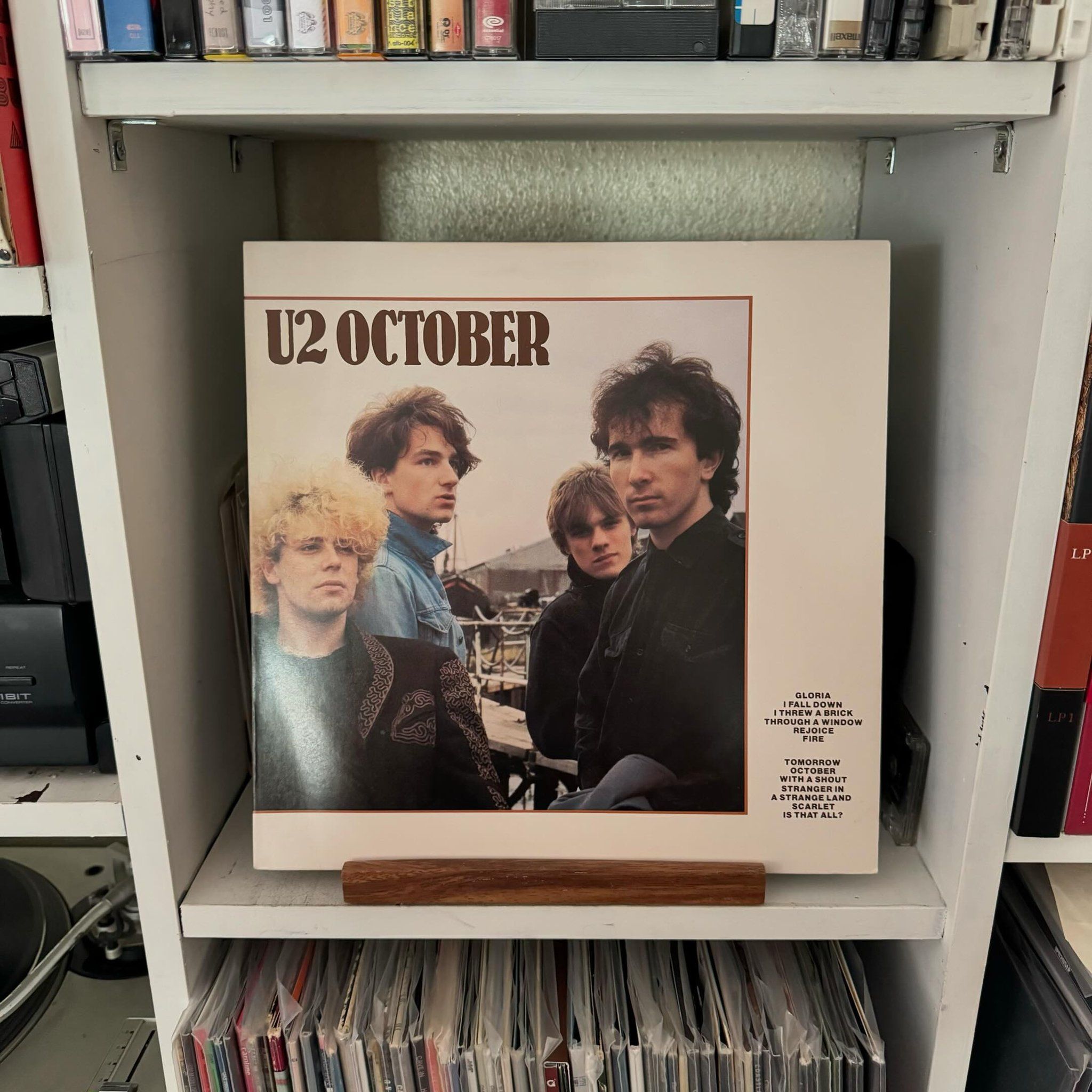
In the scope of their immense body of work, U2’s sophomore album is often overlooked.
And if you ask me, it’s an absolute travesty.
October captures all the energy of Boy and juxtaposes it against a newborn social consciousness that presented a difficult crossroads for the band.
Among the various flavors of counterculturism that emerged out of the punk scene and remnant hippie movements were pockets of radical Christians that eschewed the trappings of material gains in favor of closely following the teachings of Jesus and the Early Church. One of those groups was the Shalom Fellowship in Dublin, which Bono, The Edge, and Larry Mullens Jr joined.
After the success of Boy, Bono and the Edge had a dilemma. The life they were earnestly seeking seemed to be in conflict with the rock star lifestyle that their career seemed to be carrying them toward. It was a tension that very nearly broke up the band.
While they decided to continue as a band, that time had a profound mark on U2’s career. Their penchant for spiritual themes, socially conscious lyrics, and philanthropy were born out of that crisis of faith, and October has a much more introspective feel than its predecessor—both lyrically and musically.
Tracks like “Tomorrow*” and “October” are subdued and pensive, nestled between uptempo post punk barn burners. The latter consists only of a piano and Bono’s voice. But even the more energetic tracks have a spirituality and social consciousness that Boy was largely devoid of. “Rejoice” harmonizes Ghandi and St. Paul with the refrain “I can’t change the world, but I can change the world in me if I rejoice.” Opener “Gloria” employs a Latin chorus borrowed from the Catholic liturgy. “I Threw a Brick Through the Window” borrows from the Beatitudes and Jesus’ warnings to religious rulers. Multiple songs exhort the listener to rejoice.
Much of the spiritual focus was a result of an unfortunate touring mishap. While on tour in the States, one of Bono’s suitcases was stolen—along with the notebooks filled with lyrics he had been working on. With the studio time already booked, he was forced to write new words on the spot. The resulting lyrics often feel like meditations circling around a handful of themes, which gives the record a thematic cohesion that would be present on later albums—though much more intentionally.
This lyrical process also led to a larger focus on the instruments. There are more instrumental sections than on Boy, once more produced by Steve Lillywhite. The band’s sound is refined a bit from their debut. Edge’s Gibson Explorer and Memory Man combo are augmented with more overdrive this time around, and Mullens and Clayton are a bit deeper in the pocket. But it’s hardly a giant leap. And when you’re talking about a band that has as much variety between albums as U2, an incremental change in sound between albums rather than a reinvention can come as a disappointment. I think that’s why this record isn’t more highly regarded in their catalog, but it doesn’t stop it from being a great record in its own right.
*”Tomorrow” also offers one of the unintentionally funniest moments in U2’s catalog, offering the line “who broke the window?” only a few tracks after the song “I Threw a Brick Through a Window”